In Python logging there are two different concepts: the level that the logger logs at and the level that the handler actually activates.
When a call to log is made, what is basically happening is:
if self.level <= loglevel:
for handler in self.handlers:
handler(loglevel, message)
While each of those handlers will then call:
if self.level <= loglevel:
# do something spiffy with the log!
If you'd like a real-world demonstration of this, you can look at Django's config settings. I'll include the relevant code here.
LOGGING = {
#snip
'handlers': {
'null': {
'level': 'DEBUG',
'class': 'logging.NullHandler',
},
'console':{
'level': 'DEBUG',
'class': 'logging.StreamHandler',
'formatter': 'simple'
},
'mail_admins': {
'level': 'ERROR',
'class': 'django.utils.log.AdminEmailHandler',
'filters': ['special']
}
},
'loggers': {
#snip
'myproject.custom': {
# notice how there are two handlers here!
'handlers': ['console', 'mail_admins'],
'level': 'INFO',
'filters': ['special']
}
}
}
So, in the configuration above, only logs to getLogger('myproject.custom').info and above will get processed for logging. When that happens, the console will output all of the results (it will output everything because it is set to DEBUG level), while the mail_admins logger will happen for all ERRORs, FATALs and CRITICALs.
I suppose some code which isn't Django might help too:
import logging.handlers as hand
import logging as logging
# to make things easier, we'll name all of the logs by the levels
fatal = logging.getLogger('fatal')
warning = logging.getLogger('warning')
info = logging.getLogger('info')
fatal.setLevel(logging.FATAL)
warning.setLevel(logging.WARNING)
info.setLevel(logging.INFO)
fileHandler = hand.RotatingFileHandler('rotating.log')
# notice all three are re-using the same handler.
fatal.addHandler(fileHandler)
warning.addHandler(fileHandler)
info.addHandler(fileHandler)
# the handler should log everything except logging.NOTSET
fileHandler.setLevel(logging.DEBUG)
for logger in [fatal,warning,info]:
for level in ['debug','info','warning','error','fatal']:
method = getattr(logger,level)
method("Debug " + logger.name + " = " + level)
# now, the handler will only do anything for *fatal* messages...
fileHandler.setLevel(logging.FATAL)
for logger in [fatal,warning,info]:
for level in ['debug','info','warning','error','fatal']:
method = getattr(logger,level)
method("Fatal " + logger.name + " = " + level)
That results in:
Debug fatal = fatal
Debug warning = warning
Debug warning = error
Debug warning = fatal
Debug info = info
Debug info = warning
Debug info = error
Debug info = fatal
Fatal fatal = fatal
Fatal warning = fatal
Fatal info = fatal
Again, notice how info logged something at info, warning, error, and fatal when the log handler was set to DEBUG, but when the handler was set to FATAL all of a sudden only FATAL messages made it to the file.
